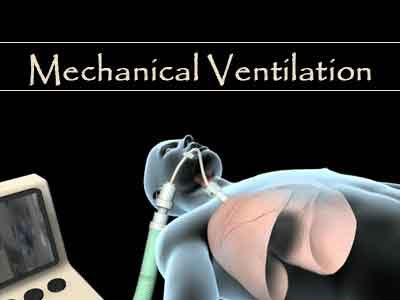- Home
- Editorial
- News
- Practice Guidelines
- Anesthesiology Guidelines
- Cancer Guidelines
- Cardiac Sciences Guidelines
- Critical Care Guidelines
- Dentistry Guidelines
- Dermatology Guidelines
- Diabetes and Endo Guidelines
- Diagnostics Guidelines
- ENT Guidelines
- Featured Practice Guidelines
- Gastroenterology Guidelines
- Geriatrics Guidelines
- Medicine Guidelines
- Nephrology Guidelines
- Neurosciences Guidelines
- Obs and Gynae Guidelines
- Ophthalmology Guidelines
- Orthopaedics Guidelines
- Paediatrics Guidelines
- Psychiatry Guidelines
- Pulmonology Guidelines
- Radiology Guidelines
- Surgery Guidelines
- Urology Guidelines
Long term mechanical ventilation may boost risk of extubation failure

Keeping patients on long term mechanical ventilation may boost the risk of extubation failure, according to the findings of a recent study published in the Journal of cardiac surgery.
Extubation failure refers to as inability to sustain spontaneous breathing after removal of the artificial airway; an endotracheal tube or tracheostomy tube; and need for reintubation within a specified time period. It is common in intensive care unit (ICU) and can cause increased morbidity, higher costs, higher ICU and hospital length of stay (LOS) and mortality. The study aimed at finding the risk factors for both extubation failure and deterioration with further mechanical ventilation (MV).
A team of researchers from Singapore collected data from a cardiothoracic ICU in a tertiary hospital. The risk factors for extubation failure and deterioration with further MV were investigated by multivariate logistic regression. The authors enrolled a total of 676 patients in the study.
Key findings
- Patients with extubation failure had a longer ICU length of stay and a higher mortality rate than patients without extubation failure.
- Risk factors: An age greater than 65 years, abnormal heart rate, respiratory rate exceeding 20 times/min, arterial pH lower than 7.35, pressure of oxygen in arterial blood (PaO2)/fraction of inspired oxygen (FiO2) ratio lower than 300 mmHg, mean arterial pressure lower than 70 mmHg, duration of MV longer than 12 hours, and high quick Sequential Organ Failure Assessment (qSOFA) score were independent risk factors for extubation failure.
- Risk factors for deterioration on continued MV: A respiratory rate greater than 20 times/min and a PaO2/fraction of Inspired Oxygen FiO2 ratio less than 300 mmHg were protective factors, while a mean arterial pressure lower than 70 mmHg, arterial pH lower than 7.35, and high qSOFA score
Based on their results, the authors concluded that the duration of MV increases the risk of extubation failure and therefore adviced physicians to consider not only the risk of extubation failure but also the risk of deterioration with further MV.
For reference, click on the link

Disclaimer: This site is primarily intended for healthcare professionals. Any content/information on this website does not replace the advice of medical and/or health professionals and should not be construed as medical/diagnostic advice/endorsement or prescription. Use of this site is subject to our terms of use, privacy policy, advertisement policy. © 2020 Minerva Medical Treatment Pvt Ltd